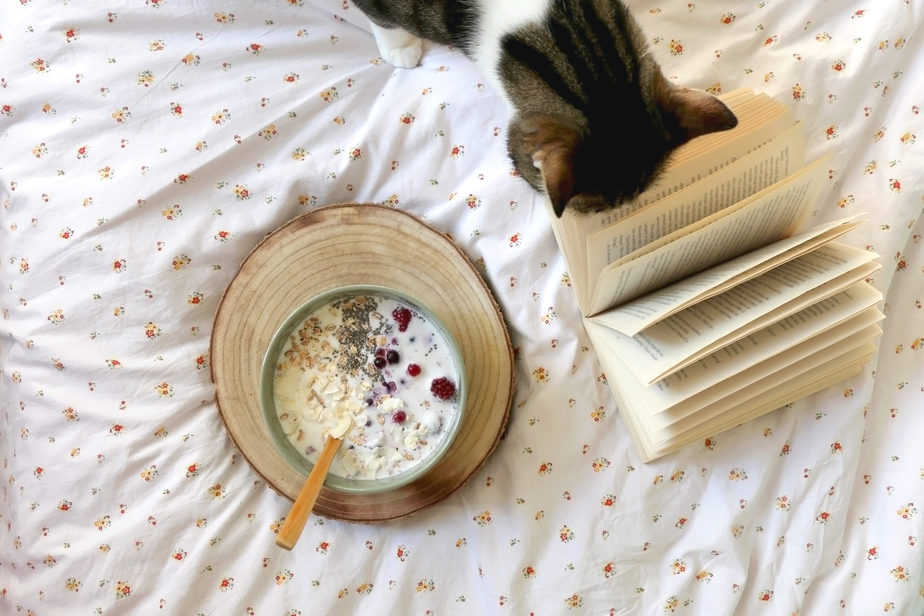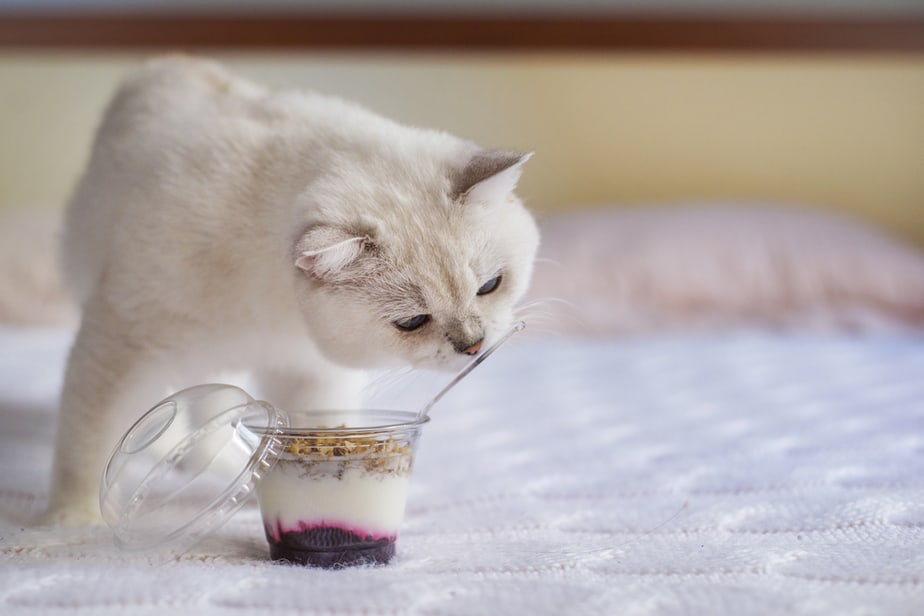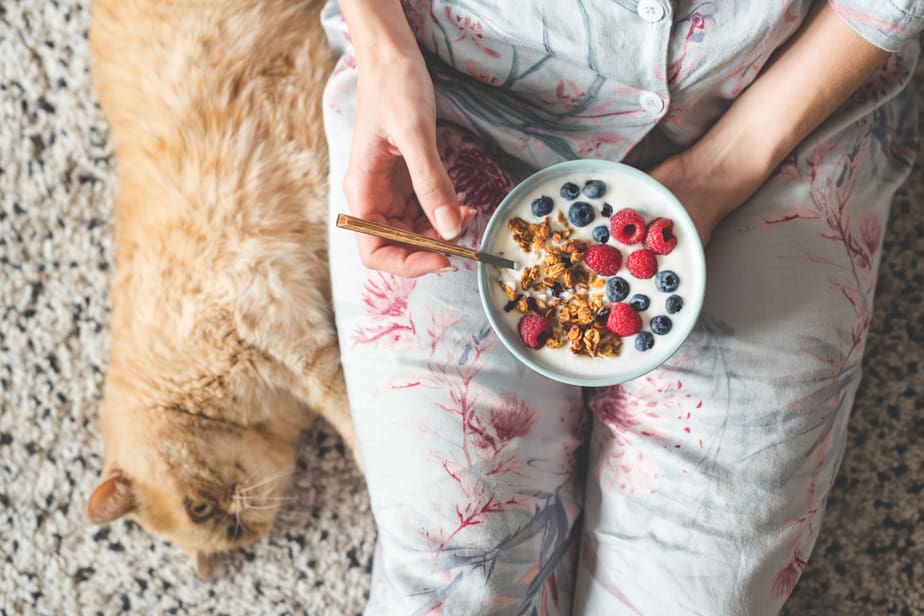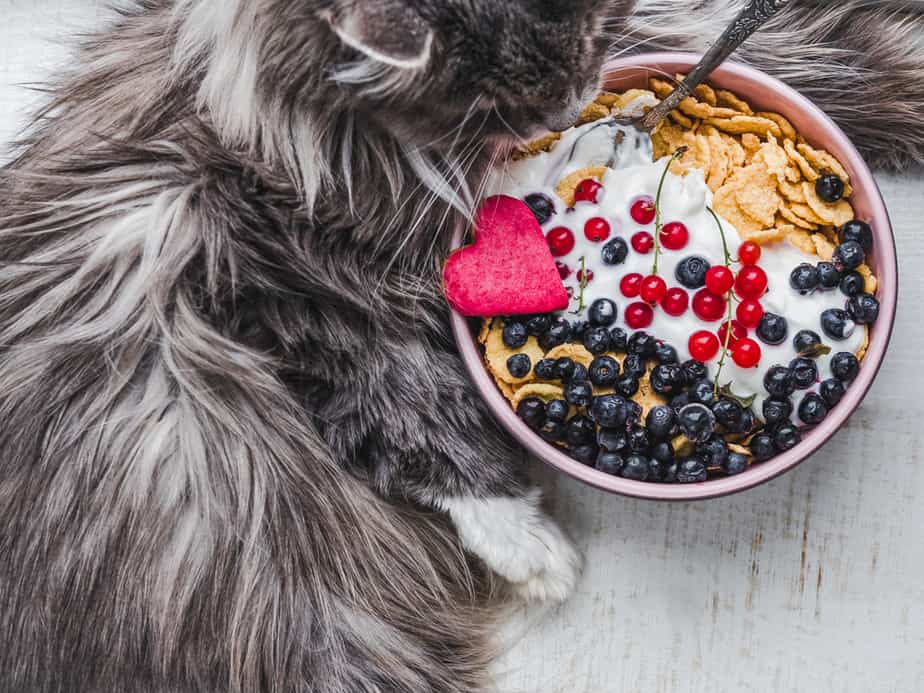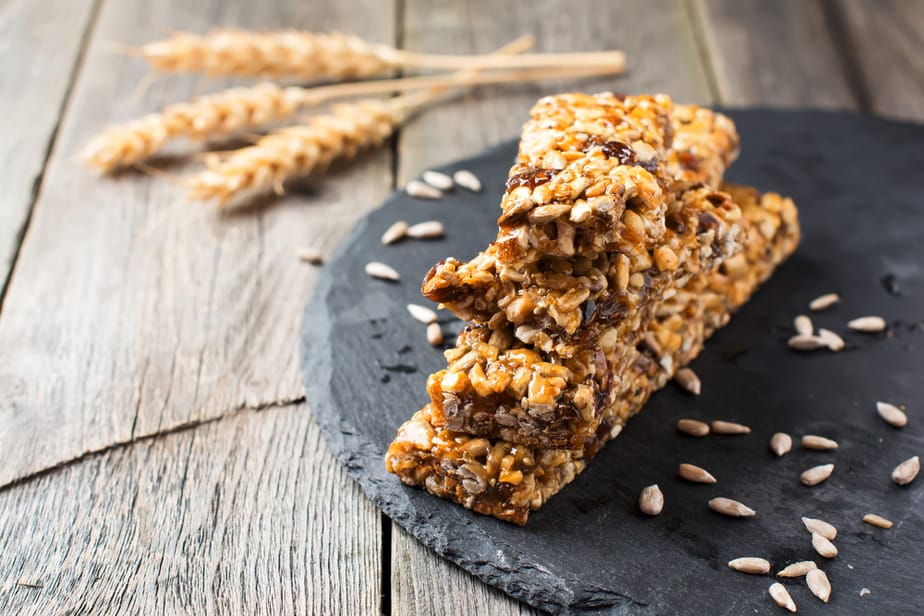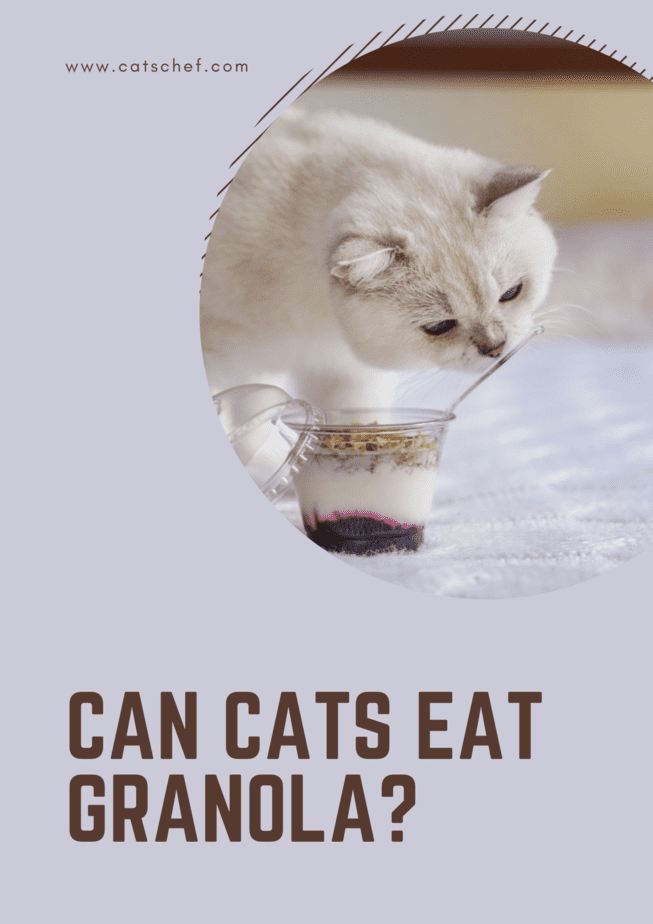📖 Table of Content:
If your bowl of granola looks suspicious after leaving it alone for a few minutes, you know where to look for clues. When owning a cat, it’s hard to accept that your breakfast time is most likely going to be disturbed. If you find the main suspect, you might wonder can cats eat granola.
Those whiskers dripping with milk can really give the thief away. Not to mention her licking her paws and bathing after a quick and nice meal. But, is there a reason to be worried if your pet snuck away with some granola?
Can cats eat granola safely?
Having granola for breakfast is great for you, especially if you want to lose extra pounds. However, this probably wasn’t your cat’s plan when she spied her potential breakfast in your bowl. Either from hunger or out of pure curiosity, it’s not uncommon for your feline to taste human food.
Granola isn’t necessarily harmful to your feline, but some ingredients could be. Even though granola is considered a healthy breakfast for humans, the same can’t be applied to your cat.
What is granola made of?
Granola is mostly made of grains; a mixture of rolled oats, nuts, puffed rice, as well as dried fruits and seeds. While this meal gives you the feeling of fullness and is good as an addition to any diet, granola isn’t entirely safe for felines.
Just as is the case with cereal, it’s best to not make it regular in your cat’s diet.
Grains
Whole grains such as oats make up the majority of granola’s content. Plain oats are no reason for concern for felines and they can even provide them with some vitamin B. In fact, you could offer your kitten a bit of your oatmeal if you’d like.
They are high in fiber and minerals like manganese, selenium, and iron. Generally, these minerals contribute to your cat’s overall health and the results are best seen on her shiny fur and healthy skin.
Rolled oats, which are steamed and flattened, are a more processed type of oats. These can also be found in granola, but a healthier option would be whole oats soaked in water.
Puffed rice is a low-calorie food that’s also rich in vitamins and minerals. It has a good balance of fiber, protein, and complex carbohydrates. But remember, felines can’t digest grains as well as humans, so most of the nutrients will go to waste.
Nuts in granola
Nuts have a low carb content, which is beneficial to both you and your pet. Carbohydrates aren’t required in a cat’s diet, so they’re typically wasted. The absence of carbohydrates in nuts can only be beneficial to your cat’s digestive tract.
Aside from the benefits listed above, nuts are a good source of vitamins and minerals. Vitamin E, which is abundant in most types of nuts, is an important antioxidant in your cat’s health. This vitamin can help her avoid heart disease and cancer.
Can cats eat dried fruits in granola?
Cats can eat dried fruits in granola to an extent. Some choices might be safe and beneficial, but others like raisins can turn out to be fatal. The most common dried fruits in granola are cranberries and apricots. These are perfectly safe for your cat to eat, but in moderation.
They’re high in potassium and beta-carotene, both of which can help prevent cancer. Bladder problems are also treated with cranberry supplements for cats. On the other hand, make sure your cat stays away from any other parts of the apricot. Just like an eggplant, its leaves and stem are poisonous to felines.
When it comes to raisins, leave that part out of your breakfast if you intend on sharing it with your pet. Raisins should be avoided at all costs because they are extremely poisonous to felines. In both cats and dogs, just one raisin can cause kidney failure.
What about seeds?
Next to dried fruits and nuts, seeds are common ingredients in granola. Pumpkin, sesame, and chia seeds are all great options to add to your breakfast. Seeds are high in fiber, making them an excellent digestive stimulant.
They’re also a good source of minerals like zinc, calcium, and magnesium, which help to build your cat’s bones. Pumpkin seeds can also be used to cure intestinal worms if they are properly ground.
Chocolate in granola: a dangerous ingredient
Chocolate is a tasty treat for humans, and the majority of us enjoy it. Whether we eat it directly from the wrapper or combine it with other ingredients, it’s always a hit.
Chocolate, on the other hand, is a danger zone for cats. It’s incredibly harmful to felines and, in the worst-case situation, can even be fatal. Caffeine and theobromine, are the two chemicals commonly found in this human delicacy that make it deadly for cats.
Can cats eat granola with milk?
One of the main and easiest choices to eat with granola is milk. The combination of these two can make you reach for the sky. Having established that some ingredients found in granola can be harmful to cats, we must warn you about the milk.
Lactose is the primary carbohydrate in milk, yet cats’ digestive system is unable to break it down. Lactose intolerance is the medical term for when the body is unable to absorb this carbohydrate. This condition is caused by a deficiency in lactase, an enzyme commonly found in the intestines, and designated to break down lactose.
Diarrhea, gas, and bloating are common side effects of being unable to digest the sugar in milk (lactose). Not the most appealing scenario. However, if your cat only drinks a small amount, she won’t necessarily display these symptoms.
Can cats eat granola bars?
You could find these short sources of energy to be a beneficial snack. Cats, on the other hand, should stay away from them. Even if they have potential benefits for cats, those do not outweigh the harmful consequences of potentially dangerous additives.
Whole grains are the most common ingredients in granola bars. Although these are non-toxic to your cat, they should be avoided. Felines are predators, which means they eat meat to survive and prosper.
Although grains are okay for her, they won’t provide her with the necessary nutritional value. These are frequently used as a filler in cat food, but never as the main choice of diet.
Final words
Cats can eat granola except for some ingredients that can be detrimental to their health. These include raisins, chocolate, and milk. Grains are on the safe side, but don’t offer much in terms of nutrition. This is reason enough for grains to not become a staple in your pet’s diet.
A bit of granola here and there won’t hurt your four-legged friend and can help with her digestion due to the high fiber content. Therefore, make good choices when it comes to the ingredients you put in this meal.
Read more: Can Cats Eat Quinoa? Are There Any Risks Or Benefits?
